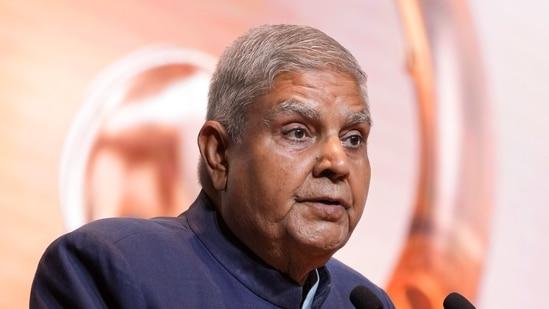Jagdeep Dhankhar Steps Down as Vice President of India, Prioritizes Health Over Office
In a development that caught almost everyone off guard, Jagdeep Dhankhar has resigned from his position as Vice President of India due to health reasons. The 74-year-old leader submitted his resignation on Monday, just as the Monsoon session of Parliament commenced.
His resignation marks the first major constitutional vacancy in recent years, leading many to pause and reflect on both his contributions and what could lie ahead.
Timeline of Events
Jagdeep Dhankhar served as the 14th Vice President of India since August 2022. Prior to that, he was the Governor of West Bengal from 2019 to 2022. He officially resigned on 1 July 2024, a little over halfway through his term, which was set to run until 2027.
- 2019 – 2022: Governor of West Bengal
- 2022 – 2024: Vice President of India
- 1 July 2024: Resigned, citing health reasons
The timing coincided with the first day of the Monsoon session, intensifying conversation on the floor of Parliament and outside its walls.
What Did the Resignation Letter Say?
“To prioritise health care and abide by medical advice, I hereby resign as the Vice President of India, effective immediately, in accordance with Article 67(a) of the Constitution,” read Dhankhar’s resignation letter, addressed to the President.
He expressed warm gratitude throughout the letter, not just to the President, but also to the Prime Minister, Council of Ministers, and Members of Parliament. His tone was reflective, humble, and, in sections, wistful.
“I am deeply thankful for the invaluable experiences and insights I have gained as Vice President in our great democracy. It has been a privilege and satisfaction to witness and partake in India’s remarkable economic progress…”
Indeed, the letter offers a rare personal glimpse into Dhankhar’s mindset as he steps down from one of the top constitutional roles in the country.
Official Reactions Begin to Surface
Though formal reactions from political parties were still trickling in by Tuesday morning, early murmurs suggest that both praise and political recalibration are expected. Several MPs shared condolences for his departure, wishing the senior leader a speedy recovery.
Members from across party lines seemed a bit taken back by the sudden announcement. After all, no prior indications had been made public, and the Vice President had been active in the Rajya Sabha until quite recently.
Parliament in Pause: What This Means for the Rajya Sabha
The Indian Constitution doesn’t offer a detailed playbook on filling the Vice President’s chair in case of an early exit. Article 67(a) allows for a Vice President to resign via a letter to the President, but it doesn’t assign a direct successor.
For now:
- The Deputy Chairperson of the Rajya Sabha will carry out Dhankhar’s parliamentary duties.
- If needed, another Rajya Sabha member can be authorised by the President to assume responsibilities temporarily.
This lack of clarity might open the door to policy debates and legislative delays, especially with crucial bills lined up for this session. But for now, functions will continue under the watch of the deputy leadership.
Community Response and Public Reactions
Out on social media and in political discussions, responses were mixed. Many extended heartfelt wishes for Dhankhar’s health, while some expressed concern over administrative continuity in this delicate period.
It’s easy to tell when a political figure leaves behind a mark. And listening to folks on the street, in tea cafés, and across campuses, Dhankhar’s name now tangibly evokes both admiration and curiosity. Some speak of his tenure with warmth, while others question the sudden nature of his decision.
For the ordinary citizen, it’s about what comes next—and who follows in his footsteps.
What’s Next? Who Will Fill the Vacuum?
As of now, no official names have been floated for the Vice President’s role. But amid speculation, a few names are doing the usual rounds in political insiders’ circles. Whether it’ll be a veteran politician or a fresh face remains to be seen.
The Election Commission is expected to soon set dates for a by-election to fill the vacancy. Formal processes may take a few weeks or possibly longer, depending on the political consensus and other scheduling challenges.
Meanwhile, questions from media and citizen forums are multiplying:
- Will this resignation shift political equations ahead of the general elections?
- Could this influence upcoming parliamentary sessions?
- Is there more to the resignation story than health concerns?
Answers might be slow in coming—or they might pop up when least expected.
Looking Back at Dhankhar’s Tenure
Jagdeep Dhankhar’s time in office wasn’t free of friction, especially during his stint as West Bengal’s Governor. Clashes with the state government were frequent, occasionally intense, and quite public.
But his shift to the Vice Presidency seemed to steady his image. His style was known to be firm yet courteous; structured, but never completely rigid. As Chairperson of Rajya Sabha, he presided over intense debates, walkouts, and discussions on policy, welfare, and reform.
One thing that stood out about Dhankhar was his readiness to engage. He spoke often—not always quote-worthy, perhaps—but always grounded and pointed.
A Closing Note from Jagdeep Dhankhar
“I am filled with pride in Bharat’s global rise and phenomenal achievements and hold unwavering confidence in her brilliant future.”
In those words lies both closure and continuity. A transition of roles, sure. But also a continuation of purpose—toward a future that, as he hints, is already taking shape.
Final Thoughts
For a role as steeped in decorum and constitutional definition as the Vice Presidency, exits like this are rare. And when they occur, they open up a space—political, symbolic, practical. Whether this change nudges India’s political rhythm one way or the other… well, we’ll be watching.

